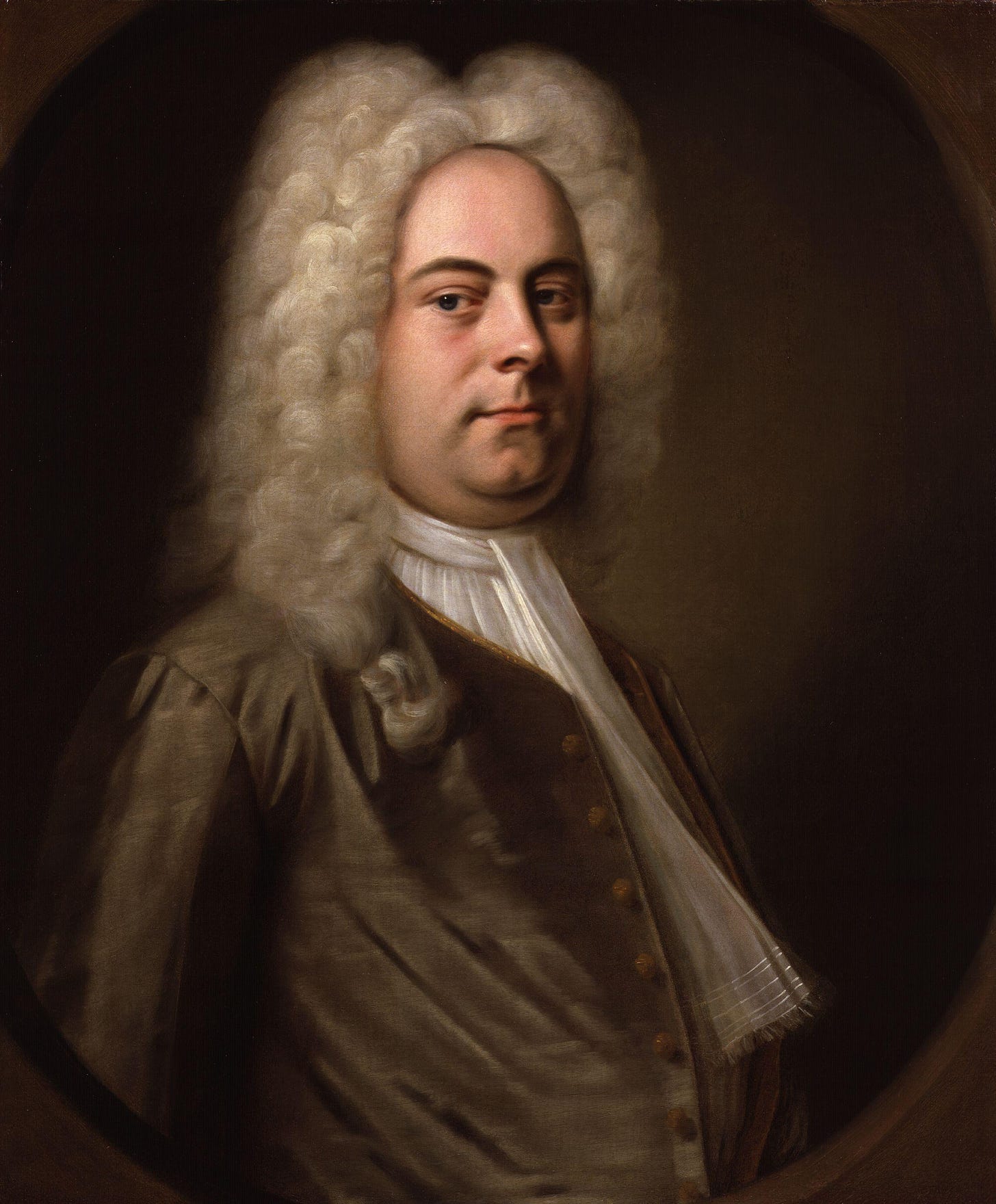How To Manage Catastrophe
We've got more work to do than you think, so take a few days off to grieve, then let's get started.
George Frideric Handel by Balthasar Denner.
Writing Nov. 4 in the Washington Post, and anticipating that things might go badly on Nov. 5, Charles King, a professor of international affairs at Georgetown, observed that Handel’s Messiah, which is the subject of his latest book, Every Valley,
was born of — and built for — a world awash in political turmoil, social unrest and fear about the future. It has endured because every generation has found its own travails mirrored in the striking combination of ancient prophecies and irresistible songs and choruses. At its core is a hidden method for thinking our way toward hope….. The “Messiah” is a piece of modern music built out of very old words, but what it offers is not blind faith in them. It is instead the working out in song of a purposeful, systematic and moral imagination of things you can’t yet see.
What Thomas Paine looked back on as “the age of reason,” King explains, really didn’t seem so at the time. (From here on I quote either King’s op-ed or his book.) Twenty-five years after Handel’s death, Immanuel Kant wrote: “If it is now asked whether we at present live in an enlightened age, the answer is: No, but we do live in an age of enlightenment.”
When Handel sat down to compose his Messiah, Europe, King continues,
had only recently emerged from decades of religious warfare, social collapse, and regicide—the chaotic, interlinked conflict of the Thirty Years War on the Continent and waves of civil war in England, Scotland, and Ireland…. And at the center of it all … lay the horrors of transoceanic slavery…. The truly pressing theme in [18th century] art, music, theater, philosophy, and theology was not, in fact, the triumph of rationality. It was instead how to manage catastrophe.
Managing catastrophe is perhaps a bigger job when we live neither in an enlightened age nor an age of enlightenment. But if Voltaire, in Candide, could take in the Seven Years’ War and the Lisbon earthquake of 1755 and conclude, “Il faut cultiver notre jardin,” maybe it’s possible to coax the working class back into the Democratic Party through organizing at the ground level. Nothing will get better until we do. That’s the subject of my latest New Republic piece. You can read it here.



Girding my loins, lacing up my marching boots. Adding soft gel inserts cause I'm old. Thank you for this!